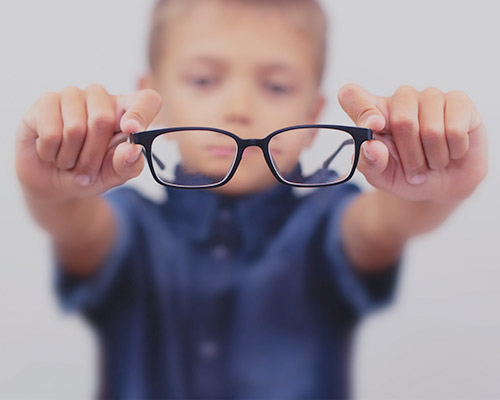

As a parent, you may wonder whether your pre-schooler has a vision problem or when a first eye exam should be scheduled. Eye exams for children are extremely important. Experts say 5 to 10% of pre-schoolers and 25% of school-aged children have vision problems. Early identification of a child’s vision problem is crucial because, if left untreated, some childhood vision problems can cause permanent vision loss. Child care for vision is no different than any other doctor’s appointment. They are all equally as important.
According to the American Optometric Association (AOA), infants should have their first comprehensive eye exam at 6 months of age. Children then should receive additional eye exams at 3 years of age, and just before they enter kindergarten or the first grade at about age 5 or 6.
For school-aged children, the AOA recommends an eye exam every two years if no vision correction is required. Children who need eyeglasses or contact lenses should be examined annually or according to their eye doctor’s recommendations.
Early eye exams also are important because children need the following basic visual skills for learning: Near vision, Distance vision, Binocularity skills, Eye movement skills, Focusing skills, Peripheral awareness, Eye/hand coordination.
Because of the importance of good vision for learning, some states require an eye exam for all children entering school for the first time.
Be sure to tell your eye doctor if your child has a history of prematurity, has delayed motor development, engages in frequent eye rubbing, blinks excessively, falls down or bumps into stationary objects, fails to maintain eye contact, cannot seem to maintain a gaze (fixation) while looking at objects, has poor eye tracking skills or has failed a pediatrician or pre-school vision screening.
Your eye doctor will also want to know about previous ocular diagnoses and treatments involving your child, such as possible surgeries and glasses or contact lens wear. Be sure you inform your eye doctor if there is a family history of eye problems requiring vision correction, such as nearsightedness or farsightedness, misaligned eyes (strabismus) or amblyopia (“lazy eye”).
© 2024 Siegmund Eye Care • Web Design by Three Ring Focus • Privacy / Terms / Employment